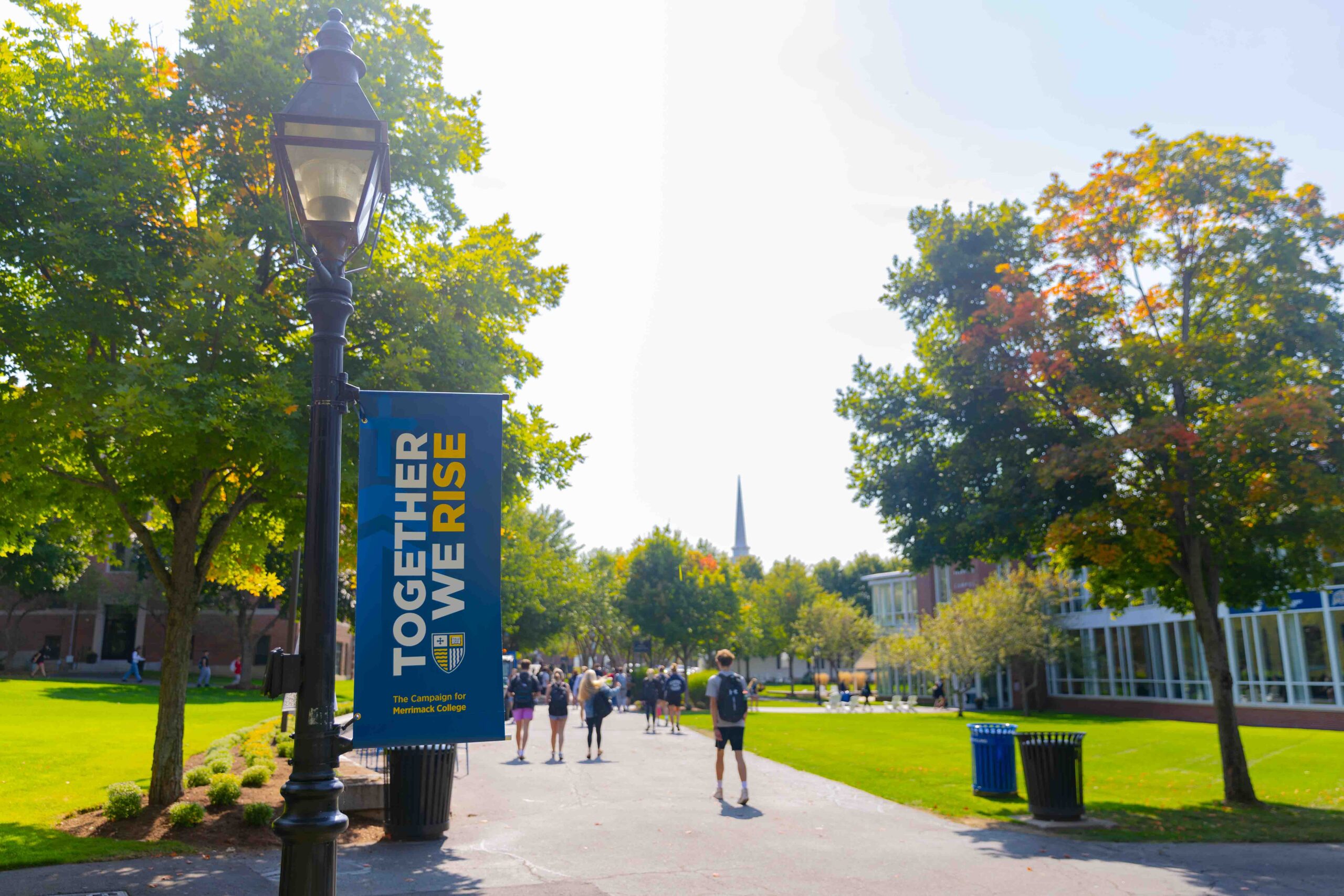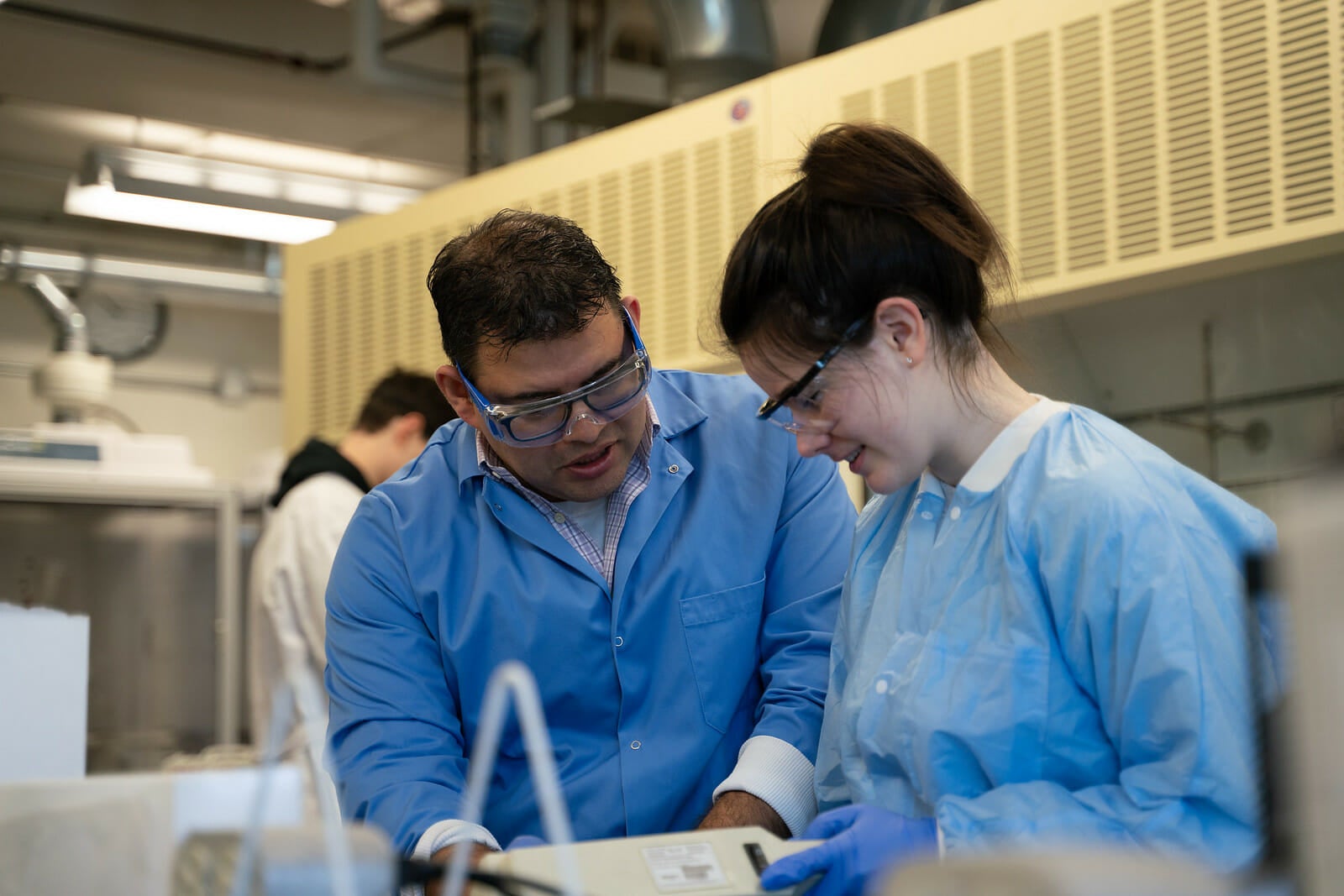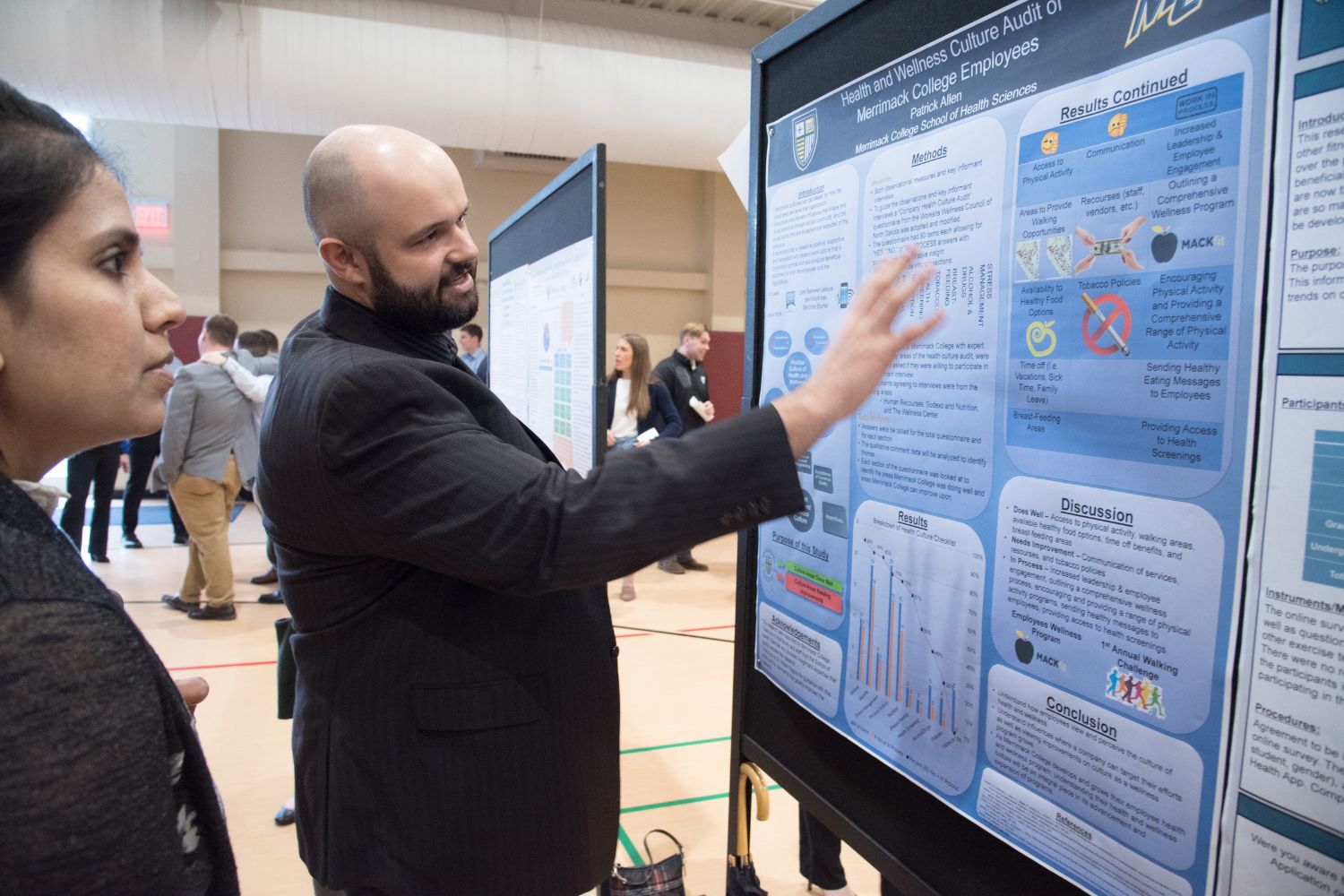Master of Science (M.S.) in Biology
Merrimack's personalized Biology master's degree offers 4 concentrations that include several 1-year tracks and a 2-year research track.
The program offers faculty mentorship and the preparation you need to excel in professional programs, industry roles, or advanced academic research. Full-tuition fellowships offered, including research assistantships!
Launching Fall 2025 — Now Accepting Applications!
Our M.S. in Biology is back this Fall! Apply by August 15, 2025 to start your courses on September 2.
We are accepting applications for our full-tuition fellowships on a rolling basis. Apply early to secure your spot!
Overview of Merrimack's M.S. in Biology
The Master of Science in Biology program at Merrimack College offers both a one-year, course-based option (32 credits) and a two-year, research-intensive option (60 credits), providing flexibility for students pursuing careers in biotech, research, and healthcare. The program features specialized concentrations in Pre-Professional Pathway, Bioinformatics, Applied Life Sciences, and a Research-Focused track, with add-on packages available for pre-med and pre-PA students. Competitive funding options include full-tuition fellowships with built-in teaching assistantships and research or laboratory experience, as well as merit-based and alumni scholarships.
This program is designed for recent graduates and professionals looking to advance their expertise in biology, biotechnology, and bioinformatics. It features small class sizes, hands-on laboratory experience with modern instrumentation and biotechnology techniques, and strong industry-aligned training to prepare students for a wide variety of careers in biology and biotechnology. Additionally, our Pre-Professional track is specifically designed to give students a competitive edge when applying to professional programs such as medical school, Physical Assistant, and Dental School.
Pre-Professional Pathway
Complete in one year.
Bioinformatics
Complete in one year.
Applied Life Sciences
Complete in one year.
Research Track
Complete in two years.
Tell Me More About Merrimack's Biology Master's Degree
"*" indicates required fields
Master of Science in Biology Tuition
Tuition Per Credit
Tuition for 2024-2025. Rates are subject to change.
Tuition For 1-Year Concentrations
32 credits
Tuition For 2-Year Research Track
60 credits
Typical Tuition Discounts for the M.S. in Biology
Merrimack College offers generous scholarship and fellowship opportunities to offset your graduate tuition.
Presidential Fellowships consist of a 1- or 2-year, 25 hour-per-week teaching assistantships and research or laboratory assistantships at Merrimack or partner organizations. Presidential fellowships cover 100% of tuition.
Double Warrior Alumni Scholarships are awarded to all Merrimack College alumni, covering 33% of tuition for recent graduates (25% for previously graduated alumni).
Dean Scholarships are merit based aid available to all students not receiving a Double Warrior scholarship or a fellowship and can cover up to 15% of tuition.
Visit the page below to find all up-to-date tuition and fees information.
Quick Facts About the M.S. in Biology
Why Choose the M.S. in Biology at Merrimack?
TAILORED CAREER PATHWAYS
Our M.S. in Biology offers both course-based and research-intensive tracks, available in full- or part-time formats, to align with your professional goals. With four industry-driven concentrations—Pre-Professional Pathway, Bioinformatics, Applied Life Sciences, and Research—you’ll gain the in-demand skills, focused training, and guidance needed to excel in your chosen field.
DIRECT FACULTY MENTORSHIP
With our smaller class sizes, Merrimack College provides you with the unique opportunity to work closely with and receive direct mentorship from a research-active faculty member, rather than a senior graduate student. For students in the thesis-based pathway, you will also receive support with publishing your thesis.
REAL-WORLD APPLICATION
Our program emphasizes hands-on experience in both research and practical settings. Whether you’re on the course-based or thesis-based track, you’ll have opportunities to develop laboratory techniques, work with cutting-edge technologies, and engage in real-world biological research, preparing you for immediate impact in the field.
FELLOWSHIPS & FINANCIAL SUPPORT
Merrimack offers competitive fellowship opportunities for M.S. in Biology students, which consist of full-tuition teaching assistantships combined with research or laboratory support experience alongside our esteemed faculty members. These opportunities provide financial support while giving you access to additional resume-building research or laboratory skills and professional development resources. We also offer Dean and Alumni scholarship opportunities to students not receiving fellowships.
Career Outlook: Where Can a M.S. in Biology Take You?
Higher Salary
For Class of 2020 graduates earning biology master’s degrees rather than bachelor’s degrees.
Median Base Pay
For biology research scientists in 2024.
Employment Growth
For medical scientists between 2023-2033.
Sources: National Association of Colleges and Employers (NACE), 2021; Glassdoor, 2024; Bureau of Labor Statistics (BLS), 2023
Jobs with a Biology Master's Degree
Upon completing our program, you’ll be well-equipped to pursue a career in a wide range of biology-related disciplines. Positions may include:
- Medical Doctor (via Medical School)
- Physician Assistant (via PA School)
- Bioinformatician
- Biotechnology Research
- Research Scientist
- Bioinformatics analyst
- Computational biologist
- Biotech Product Manager
- Ph.D. student
- Laboratory technician
- Veterinarian (via Veterinary School)
- Forensic Scientist
Our M.S. in Biology Pathways
Select a program pathway below to learn more:
Merrimack's M.S. in Biology Course-Based Concentrations
Merrimack’s Master of Science in Biology offers three one-year, course-based concentrations designed to prepare students for medical school, data-driven biological research, and leadership roles in the biotech and pharmaceutical industries. Whether you’re looking to strengthen your application for professional healthcare programs, develop sought-after bioinformatics skills, or gain a competitive edge in life sciences management, our specialized concentrations provide the hands-on training and industry-aligned expertise needed for success.
Learn about our course-based concentrations:
Pre-Professional Pathway
Gain a competitive edge for medical, dental, or other professional healthcare programs with advanced training in biotechnology techniques and data analysis. This concentration equips you with essential laboratory skills and analytical expertise, preparing you for the rigorous demands of professional schools and careers in healthcare and biomedical research. By earning a master’s degree, you’ll receive a more comprehensive education and have a distinct advantage over post-bac or internship candidates.
Bioinformatics
Bridge the gap between biology and data science with hands-on experience in Python and R programming, data visualization, and biotechnology techniques. This bioinformatics-focused concentration prepares you for up-and-coming careers in biotechnology, computational biology, and life sciences research by providing the technical skills to analyze complex biological data and solve real-world challenges.
Applied Life Sciences
Combine cutting-edge biotechnology techniques with product management expertise to excel in the growing life sciences industry. This concentration is designed for students looking to transition into leadership roles in biotechnology, pharmaceuticals, and life sciences management by developing both laboratory skills and industry-relevant business acumen.
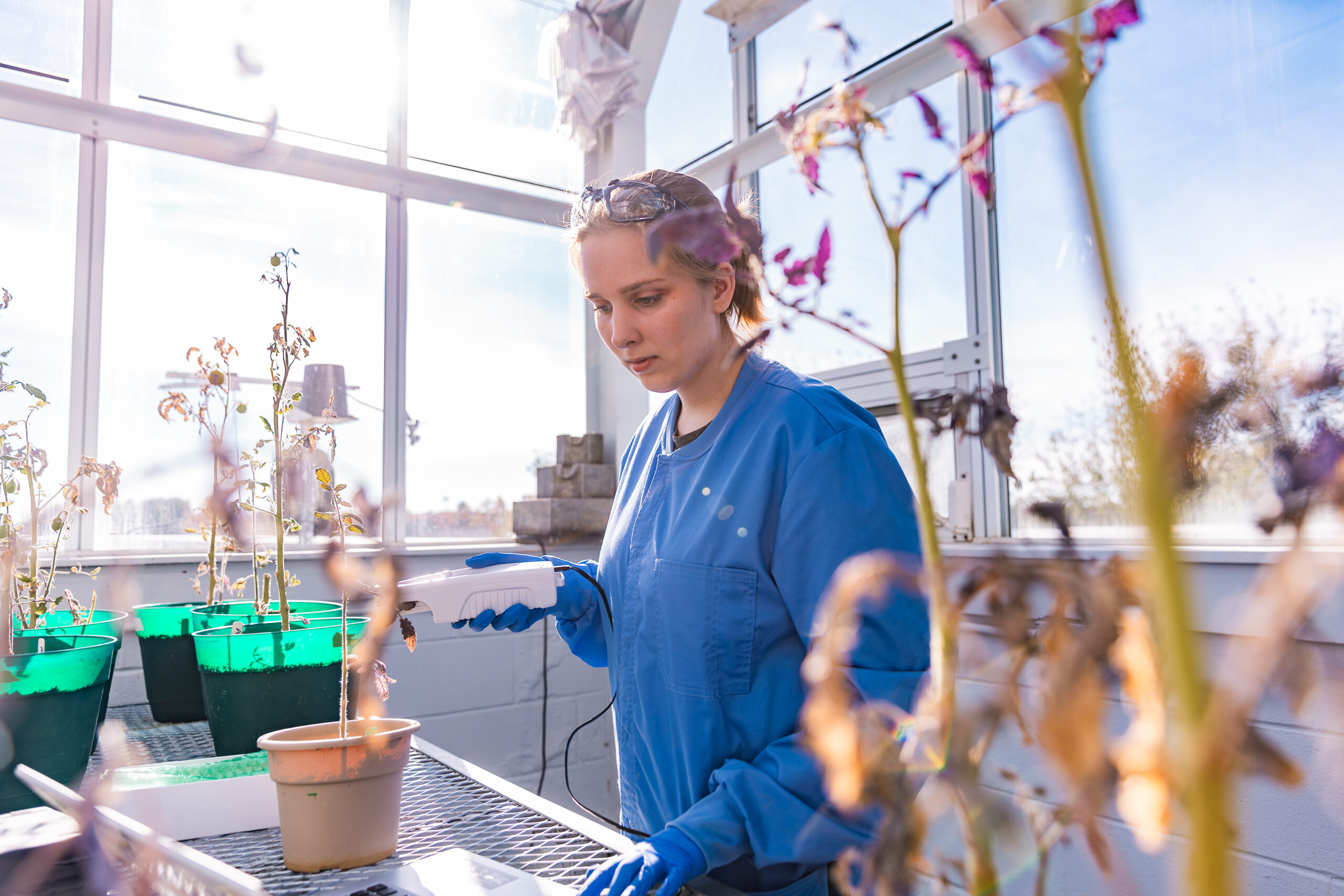
Course-Based Concentrations at a Glance
Mode of Study
On Campus, Hybrid
Est. Time
12 Months Full-time (part-time study available)*
Credits
32
Fellowships
1 Year; Full-tuition
*If enrolling part-time, the estimated completion time will be longer than 1 year.
Merrimack's M.S. in Biology Research Concentration
Merrimack’s M.S. in Biology offers a two-year, research-intensive track that provides hands-on training in biotechnology techniques, data analysis, and research design, preparing students for careers in research, biotechnology, and the pharmaceutical industry, as well as competitive Ph.D. programs. Unlike larger institutions where graduate students often work under postdocs, our small class sizes and faculty mentorship model ensure direct guidance from research-active faculty. Students will engage in independent research, develop advanced laboratory skills, and complete a graduate thesis, gaining the expertise needed to excel as a Research Scientist or in laboratory roles across life sciences industries. This program is ideal for those seeking to deepen their scientific expertise while receiving personalized mentorship and support in publishing their research.
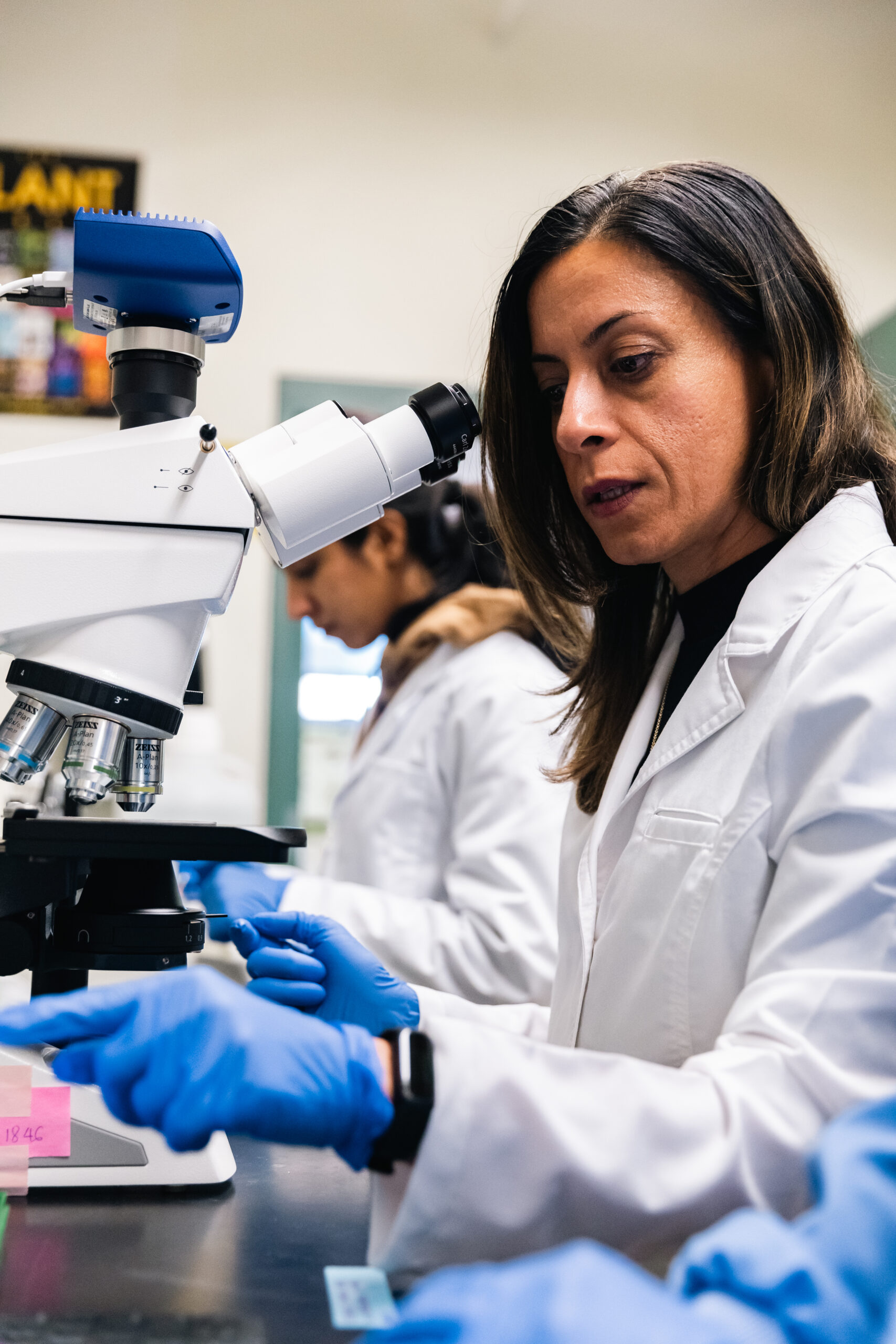
Research Concentration at a Glance
Mode of Study
On Campus
Est. Time
2 Years Full-time (part-time study available)*
Credits
60
Fellowships
2 Years; Full-tuition
*If enrolling part-time, the estimated completion time will be longer than 2 years.
Enhance Your Master’s Degree with an Add-on Package
Our M.S. in Biology add-on packages are designed to provide students with enhanced support, added value, and a competitive edge when applying to medical, physician assistant (PA), and other professional programs. These packages offer access to essential resources, including test preparation courses and study materials, to help students excel in their professional program applications. By choosing an add-on package, students can strengthen their academic foundation, improve their test performance, and gain the confidence needed to succeed in their medical or PA school journey.
Pre-Med Package
Our Pre-Med Package is designed to give students the tools and support needed to excel in their journey to medical school.
Services include:
- MCAT Prep
- Medical School Application Workshop
- EMT Training
Pre-PA Package
This package is tailored to help students meet the specific requirements and prepare for the competitive Physician Assistant (PA) school application process.
Services include:
- Shadowing program for pre-admission hour requirement (over 1,000- 3,000 hours in a healthcare setting)
- GRE Prep
- PA School Application Workshop
- EMT Training
What You'll Learn in Merrimack's M.S. in Biology
Core Biology Courses You'll Take
Survey of Methods Bio
BIO6001
Graduate students will explore various research methods while working closely with Biology faculty in laboratory or field-based projects. They will gain hands-on experience with advanced techniques and equipment, such as confocal and fluorescent microscopes, spectrophotometers, PCR systems, and more. Emphasis will be placed on experimental execution, reagent preparation, and safe research practices.
Quantitative Biology
New course!
This course will provide an overview of some of the quantitative approaches used in all aspects of biology. This course will cover biological applications of statistical analysis and mathematical calculations pertaining to the principles of various tasks including bioinformatics, applied statistics, and machine learning. Students will also gain experience using various software packages including R.
Molecular Biology and Biotechnology
BIO5038
This project-based course integrates lecture and lab to explore key biotechnology processes and breakthroughs in biology and medicine. Students will learn molecular genetics theories and cutting-edge techniques used in research and industry. Graduate students will design and lead a lab experiment and provide a detailed reflection on its outcomes and improvements.
Master of Science in Biology Curriculum
Curriculum for our Course-Based Concentrations
Requirements for the M.S. in Biology Course-Based Concentrations
Credits: 32
1 – year program – Pre-Professional Concentration
Fall | Spring | Summer |
|
|
1 – year program – Bioinformatics Concentration
Fall | Spring | Summer |
|
|
1 – year program – Applied Life Sciences Concentration
Fall | Spring | Summer |
|
|
|
Curriculum for our Research Concentration
Requirements for the M.S. in Biology Research Concentration
Credits: 60
2 – year program
1st year of 2 year program
Fall | Spring | Summer |
|
|
|
2nd year of 2 year program
Fall | Spring | Summer |
|
|
|
*4 cr. each semester can be used to take a graduate elective
Skills You'll Learn
Merrimack’s Master of Science in Biology provides you with a versatile set of marketable, specialized skills that align with your professional goals. Each concentration is designed to ensure you gain the expertise needed for your chosen career path. Here’s a closer look at the key skills developed in each area:
Pre-Professional Pathway
- Biotechnology Techniques – Gain hands-on experience in molecular biology, laboratory methods, and biotechnology applications.
- Data Analysis & Quantitative Biology – Develop the ability to analyze biological data, interpret experimental results, and apply statistical methods to biological research.
- Medical & Health Sciences Knowledge – Build a strong foundation in chronic disease, medical nutrition therapy, and healthcare leadership to prepare for professional school and careers in biomedical research.
- Scientific Research & Critical Thinking – Learn to design experiments, evaluate scientific literature, and apply evidence-based approaches in biomedical and healthcare fields.
- Communication & Leadership in Healthcare – Develop skills in scientific communication, health organization leadership, and professional collaboration essential for success in medical and research settings.
Bioinformatics-Focused Concentration
- Programming for Biological Data – Develop proficiency in Python and R for data analysis, statistical modeling, and computational biology applications.
- Data Visualization & Interpretation – Learn to transform complex biological data into clear, actionable insights using visual data exploration techniques.
- Biotechnology Techniques – Gain hands-on experience in molecular biology and biotechnology methods to complement computational skills.
- Quantitative & Statistical Analysis – Apply data science and statistical methods to biological research, enhancing your ability to analyze and interpret experimental results.
- Scientific Research & Communication – Strengthen critical thinking, problem-solving, and communication skills to effectively present findings in research or industry settings.
Applied Life Sciences Concentration
- Biotechnology Techniques – Gain hands-on experience in molecular biology and biotechnology methods, essential for roles in biotech and pharmaceutical industries.
- Life Sciences Innovation & Product Development – Learn how innovation, regulatory policies, and intellectual property shape the development of biotechnology and life sciences products.
- Leadership & Strategic Communication – Develop management and leadership skills through Leadership Frameworks & Communication Strategies, preparing you for leadership roles in biotech and pharma.
- Regulatory & Market Strategy – Understand the regulatory, reimbursement, and intellectual property considerations that impact life sciences businesses.
- Problem-Solving & Design Thinking – Apply design thinking principles to create innovative solutions for complex challenges in biotechnology and healthcare.
- Real-World Application – Put your knowledge into action through a Life Sciences Capstone or Internship, gaining practical experience in industry settings.
Research Concentration
- Advanced Biotechnology Techniques – Gain hands-on experience in molecular biology, biotechnology methods, and laboratory protocols essential for research and industry applications.
- Research Design & Methodology – Learn to design, conduct, and analyze biological research through independent faculty-mentored research projects and coursework in survey methods and quantitative biology.
- Data Analysis & Interpretation – Develop expertise in quantitative biology, statistical analysis, and data-driven decision-making, essential for careers in research and biotech.
- Scientific Writing & Publishing – Receive direct faculty mentorship to develop your graduate thesis, contribute to scientific publications, and refine your ability to communicate complex research findings.
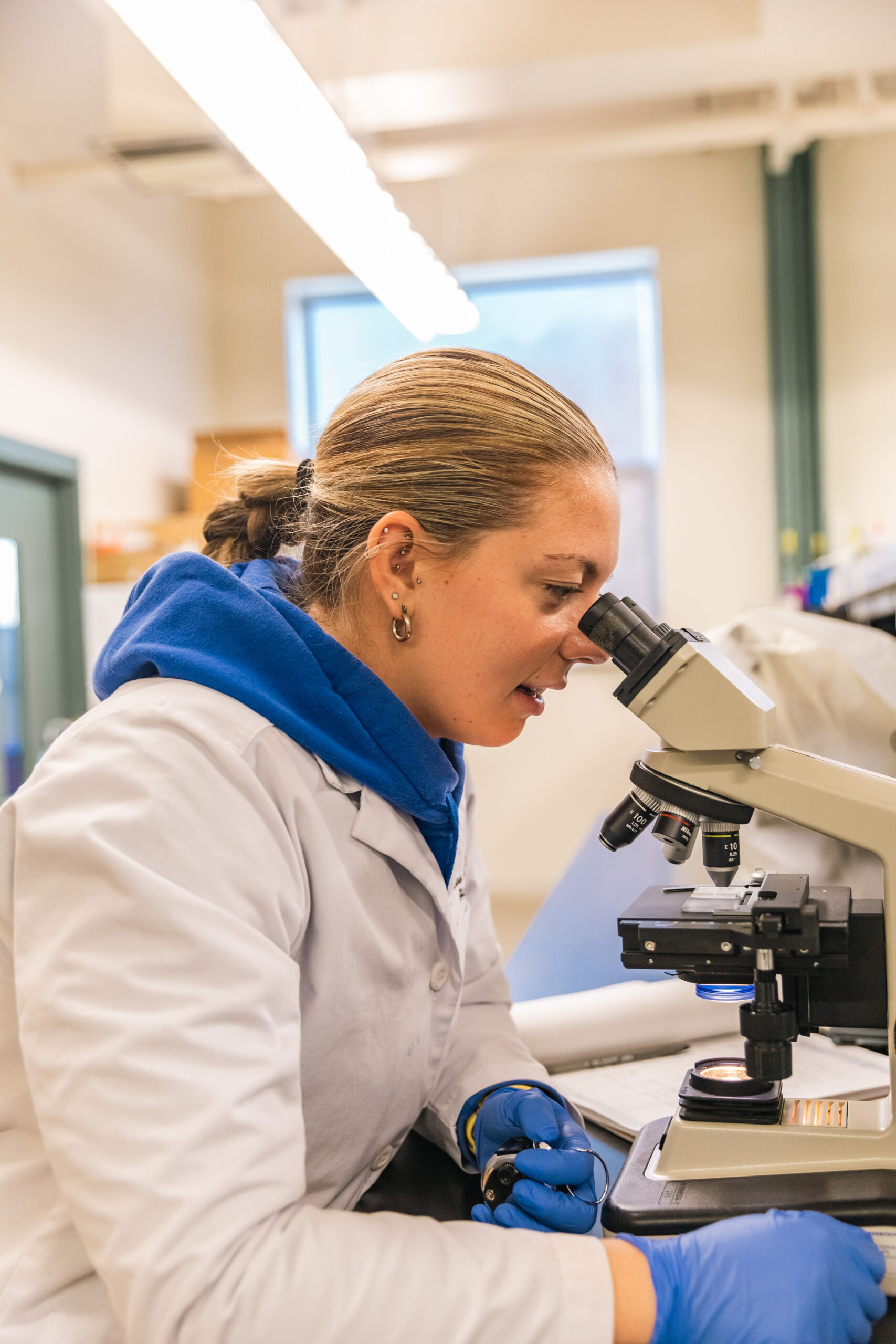
Research Faculty
Charlotte Berkes, Ph.D.
Associate Professor & Program Director of the Master of Science in Biology
Dr. Charlotte Berkes is an Associate Professor of Biology at Merrimack College and a Zampell Faculty Fellow specializing in immunology and microbiology. Her research focuses on antibiotic discovery, particularly identifying novel antimicrobial molecules through interdisciplinary approaches combining microbiology, biochemistry, and computational methods. She collaborates with institutions like the Structural Genomics Consortium and Northeastern University’s Antimicrobial Discovery Center to explore drug repurposing and antifungal compounds. Dr. Berkes holds a Ph.D. in Molecular and Cellular Biology from the University of Washington and has received multiple honors, including the Laurence M. Demers Professorship in Life Sciences.
William McDowell, Ph.D.
Associate Professor, Biology
Dr. William McDowell is an Associate Professor of Biology at Merrimack College, specializing in aquatic ecology, global change, and invasive species. His research examines the ecological impacts of global change, including earlier ice-out dates on New England lakes, scallop population responses to fishery closures, and sources of pharmaceuticals in aquatic ecosystems. He holds a Ph.D. in Ecology from the University of Georgia and a B.A. in Biology from Williams College. A Zampell Faculty Fellow, Dr. McDowell has published extensively on invasive species, climate change, and ecosystem dynamics in leading scientific journals.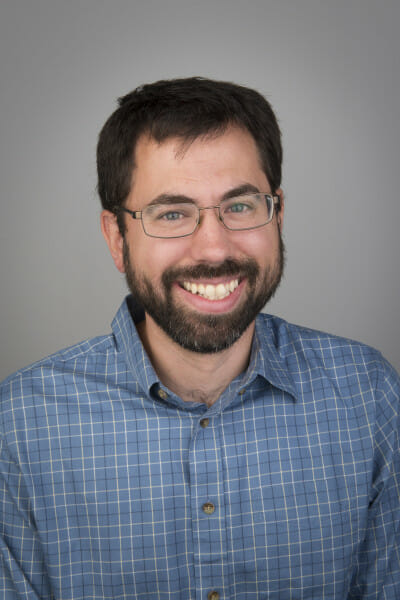
Azam Noori, Ph.D.
Associate Professor, Biology
Dr. Azam Noori is an Associate Professor of Biology at Merrimack College and serves as the Laurence M. Demers Professor in Life Sciences (2024-2026) and Director of the Mendel Greenhouse. Her research focuses on phytoremediation, studying how plants can remove environmental contaminants like PFAS and nanomaterials, as well as the potential of plant metabolites in cancer therapy. She has published extensively on plant responses to pollutants and nanomaterials and has received multiple grants and fellowships for her research. Dr. Noori holds a Ph.D. in Plant Physiology from Tarbiat Modares University and has professional experience as a Postdoctoral Associate at SUNY-ESF.
Leena Bharath, Ph.D.
Associate Professor
Dr. Leena Bharath is an Associate Professor with expertise in cell biology, immunology, metabolism, and microbiology. Her research focuses on understanding the changes in immune cell mitochondria during aging, particularly in the context of obesity and diabetes, with an emphasis on mitochondrial dynamics and bioenergetics. She holds a Ph.D. in Food Science from Oklahoma State University and has published extensively on topics such as immune cell function, metabolic dysregulation, and inflammation. Dr. Bharath has contributed to numerous publications on the intersection of immune response, mitochondrial function, and metabolic diseases.
R. David MacLaren, Ph.D.
Professor, Biology
Dr. David MacLaren is a Professor of Biology at Merrimack College with research interests in animal behavior, physiology, evolutionary biology, and marine biology. His research primarily focuses on the behavior and social interactions of fish, particularly in areas such as mate choice, sexual selection, and aggression, as well as the impact of environmental exposures on fish behavior. He is also an associate scientist with the Blue Ocean Society for Marine Conservation, where he contributes to marine mammal research and conservation efforts in the Gulf of Maine. MacLaren holds a Ph.D. in Ecology and Evolutionary Biology from Indiana University and has published extensively on animal behavior and environmental influences on wildlife.
Fellowships, Scholarships, and Financial Aid
Biology Graduate Fellowships
Merrimack College offers Presidential Fellowship opportunities to students in the biology master’s program that cover 100% of their graduate tuition. Qualified applicants gain enhanced development via a work placement of 25 hours per week, where they will be participating in a combination of a teaching assistantship role and research or laboratory support. The responsibilities include:
- Teaching: Fellows are expected to serve as teaching assistant for two introductory STEM laboratory courses per semester. Responsibilities include supporting large
lecture classes, and leading review sessions outside of regular class hours. - Research/Laboratory Support: In addition to your role as a teaching assistant, fellows will dedicate additional hours to their faculty-mentored research project or work with a laboratory support team developing essential biological and chemical techniques by helping setting up laboratory experiments, preparing materials and reagents for undergraduate teaching labs.
Please note that if you accept a fellowship position, you will not be eligible for any other discounts or scholarships, including the merit-based Dean scholarship or the Double Warrior alumni scholarship.
Scholarships and Financial Aid
Merrimack College offers scholarships for students who are not receiving a fellowship. Our scholarship opportunities available to M.S. in Biology students include:
- Dean Scholarship: Determined by academic merit and financial need. Students not receiving a fellowship are automatically considered for a Dean Scholarship upon applying.
- Double Warrior Alumni Scholarship: Available to all Merrimack graduates. Students enrolling immediately after senior undergraduate year automatically receive a 33% discount, and 25% thereafter. Please note that Double Warrior alumni scholarships cannot be combined with Dean Scholarships.
Financial aid in the form of federal aid, private loans, and payment plans are also options available for graduate students. Click the link below to learn more about our scholarships and financial aid opportunities.
Application Information for the M.S. in Biology
It’s easy to apply online! Simply create your account by registering a username and password. This will allow you to start an application, save and log back in at any time to complete it before submission.
A Completed Application Includes:
Important Information:
- Online application
- Official college transcripts from all institutions attended
- Resumé
- Interview OR personal statement
- Contact information for one reference OR one letter of recommendation
- No application fee or GRE requirement.
- If applying for a fellowship, be sure to indicate that on your application.
- Optional: Submit test scores to enhance or support your academic background.
Graduate Community and Student Support
Discover Merrimack’s vibrant and supportive graduate community! Our Graduate Center, located on the second floor of the McQuade Library, is our hub for student life, resources, and support, ensuring that you get the most out of your graduate experience.
Enjoy the following benefits that are exclusive to graduate students:
A comfortable lounge for studying and socializing
A home base for daily life on campus with coffee and tea, a microwave and a fridge
A venue for programs and services supporting graduate student success
A warm, inviting place to connect with staff and other graduate students
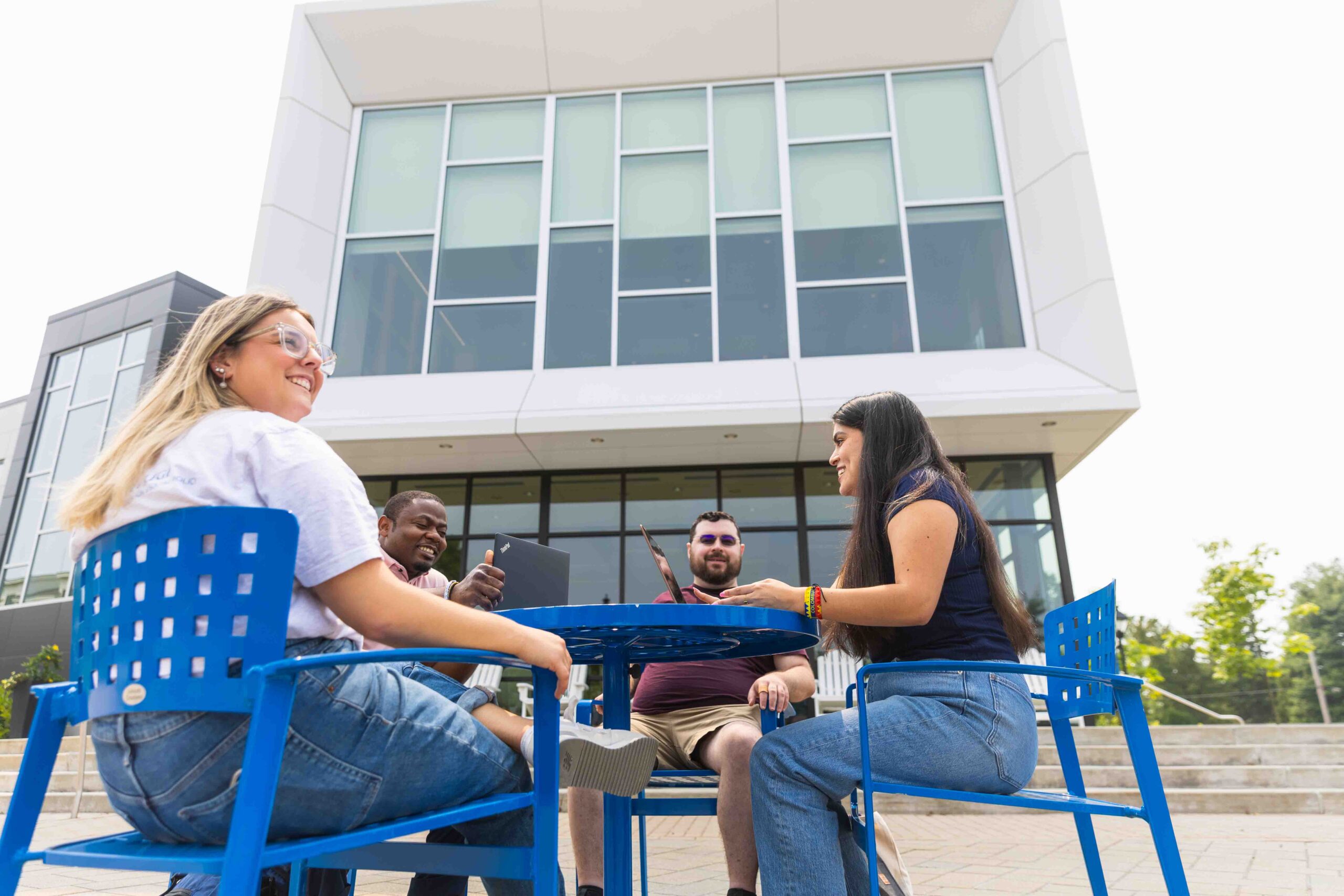

Want to Learn More about the Master of Science in Biology?
Contact the Program Director, Dr. Charlotte Berkes!
Take the Next Step (We're Here to Help)
At Merrimack, we are ready to meet you where you are and get you where you want to go. And, we make the process simple along the way! Please feel free to contact our Graduate Admission team or join us at an upcoming event if you have any questions regarding scholarships, fellowships, financial aid, or the application process.
Programs Related to the Master of Science in Biology
Explore other areas and where they can take you.
Merrimack College Awards & Recognition
U.S. News & World Report | Best Regional Universities North (2024)
- Most Innovative Schools (#5)
- Regional Universities North (#39)
- Best Undergraduate Teaching (#19)
- Best Colleges for Veterans (#15)
- Best Value Schools (#51)
